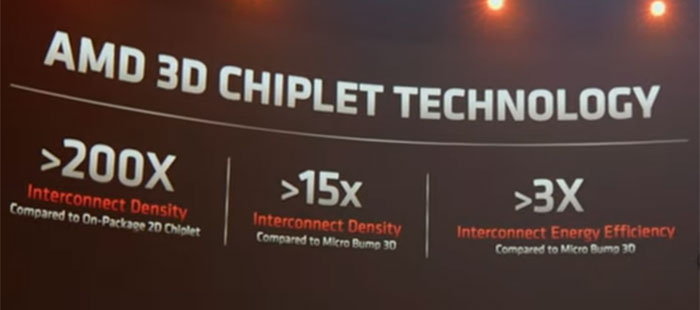AMD tacked a very interesting segment on 'Advanced Technology' to the end of its Computex 2021 keynote. To talk about this tech, Dr Lisa Su returned to the stage and started by reminding us that AMD has been a pioneer in adopting advanced process nodes, 2.5D and 3D chip stacking, and multi die processor creation. Su explained that AMD's product leadership leans heavily on the twin forces of the best process technology and the best packaging technology coming together.
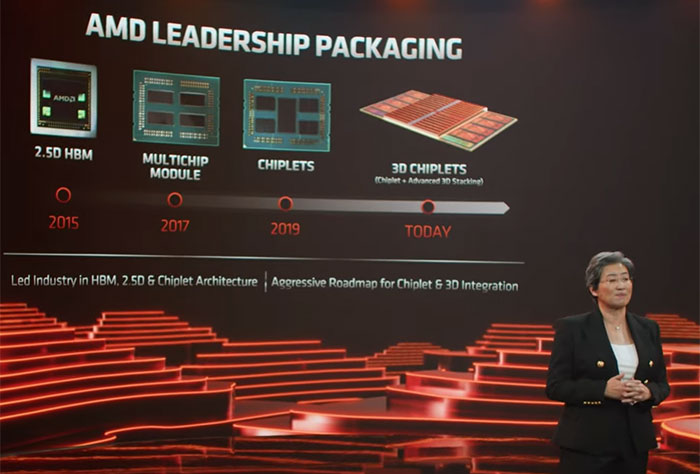
Above you can see that AMD is today working on designs with chiplets and advanced 3D stacking techniques. AMD's first application of this 3D chiplet technology has been adding a 3D vertical cache to an existing design – the AMD Ryzen 5000 series desktop processor. Specifically, at Computex today, AMD showed off a 3D V-cache enhanced Ryzen 9 5900X processor.
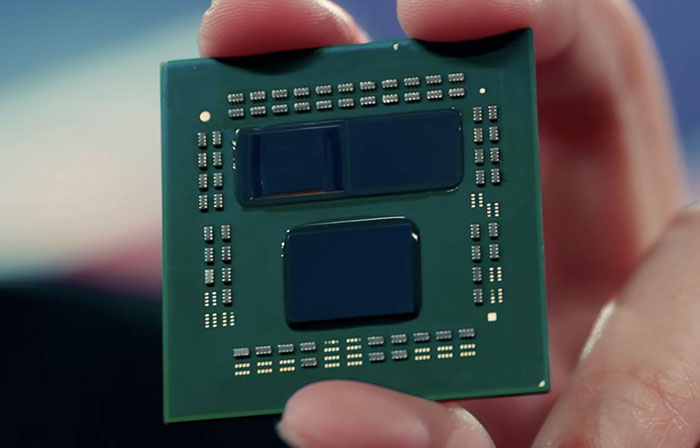
Stacking a 64MB 7nm SRAM onto each core complex (CCD) in effect triples the amount of L3 cache on the Zen 3 processor. Furthermore, TSVs bonding the chips provide 2TB/s bandwidth, said Dr Su. The TSVs are direct copper-to-copper bonded, so there is less chance for heat build-up between the parts. Towards the end of her explanation of the new technology, Su boasted that "all of these things make this truly the most advanced and flexible active-on-active silicon stacking technology in the world".
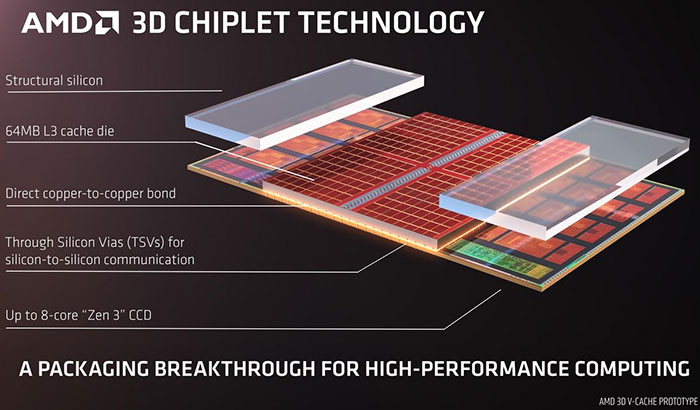
AMD seems to have chosen to apply this tech first to caching as it benefits so many PC workloads. Nicely for us, the benefits of 3D V-Cache on gaming was a chosen highlight of the presentation and AMD showed some Gears 5 comparison performance. You can see from the numbers presented that the 3D V-cache enhanced Ryzen 9 5900X processor was 12 per cent faster on average in this game. Please note that the processors were compared like for like, both running at a fixed 4GHz for this gaming run. Across a wider selection of games, AMD charted a 15 per cent better performance on average.
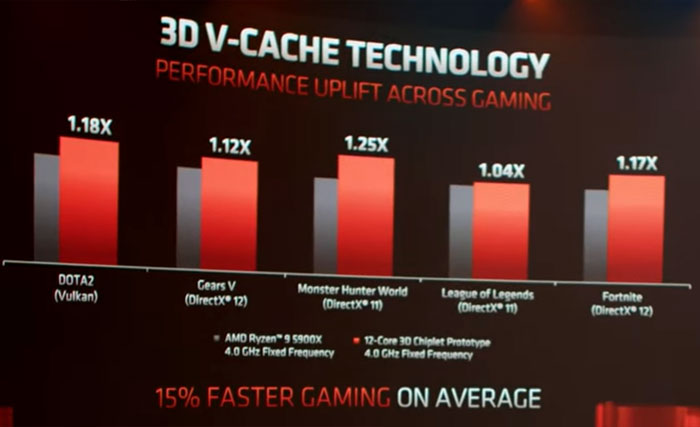
Production of the highest-end processor products featuring 3D chiplets is scheduled to start at the end of 2021. Last but not least, Su confirmed 5nm Zen 4 products are on track for being launched in 2022.
